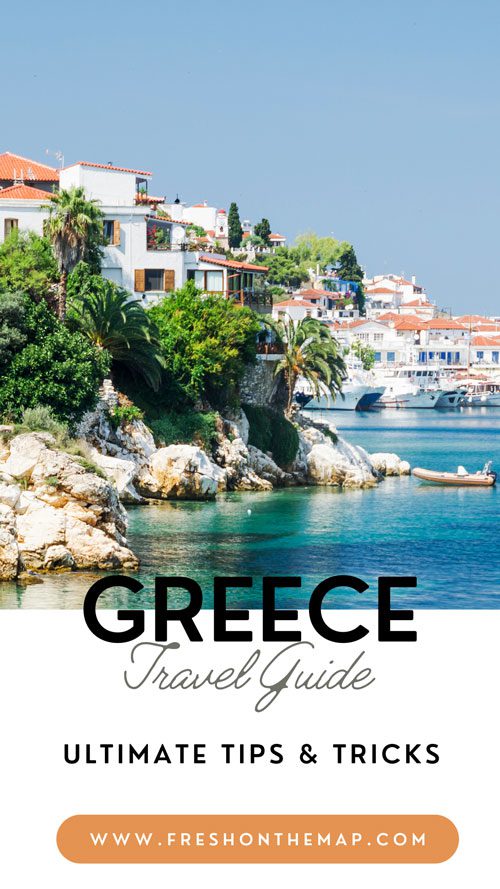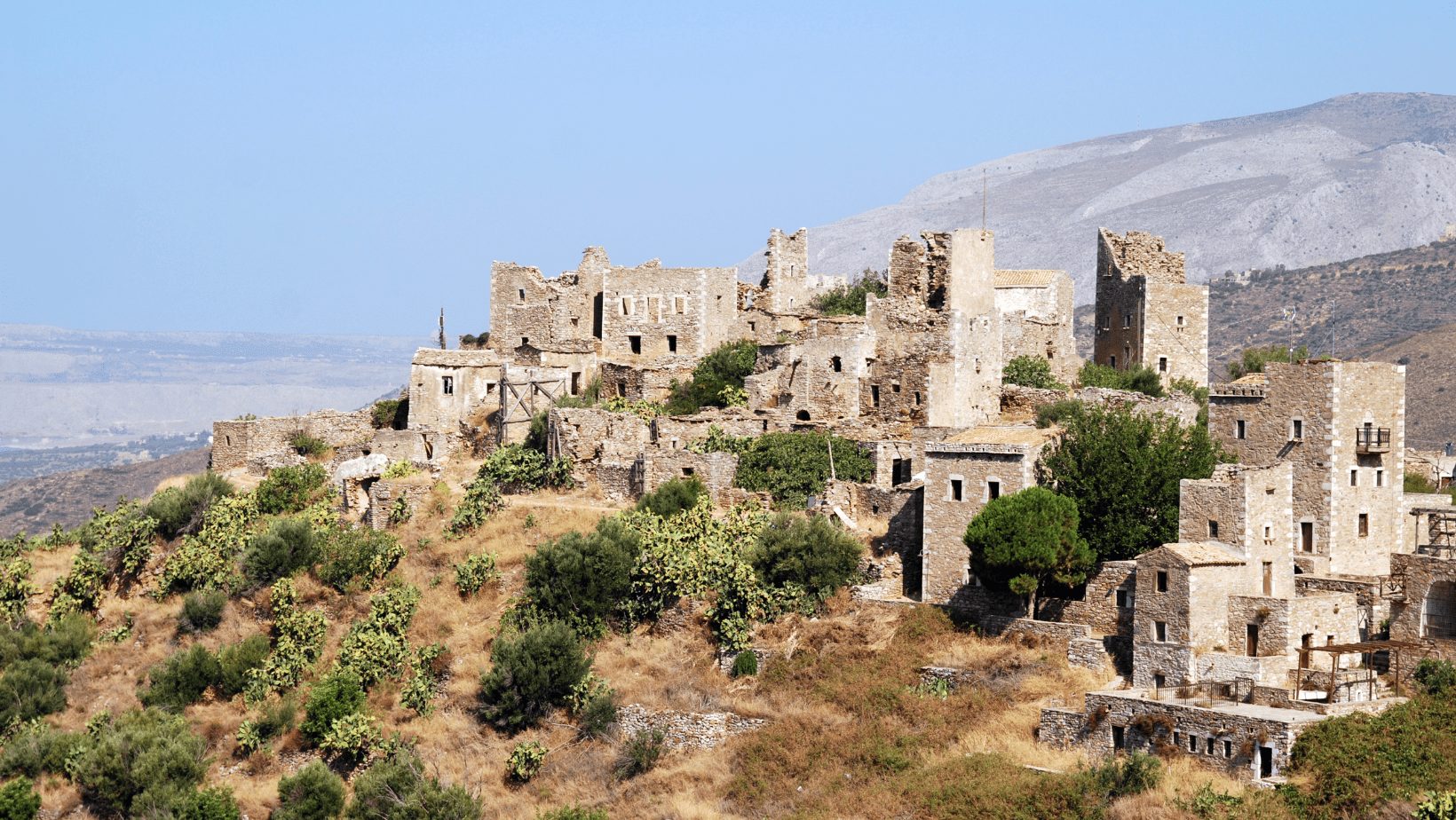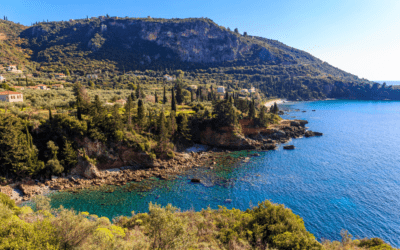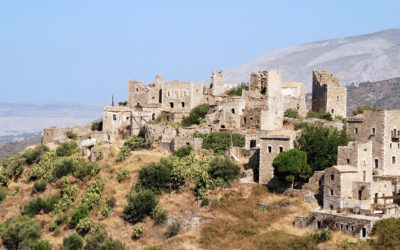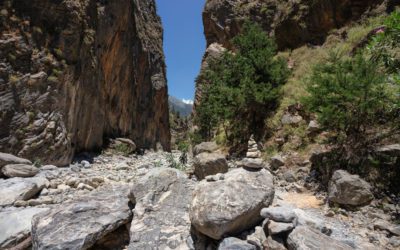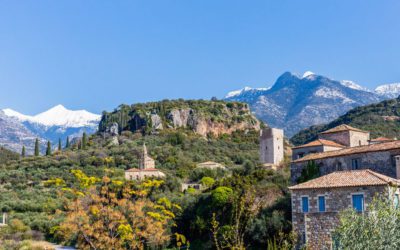Ultimate Travel Guide to Exploring Greece
The Basics
Currency: As part of the European Union, Greece uses the Euro. Credit cards are accepted in most hotels, restaurants, and shops, but it’s always safe to carry some cash for taxis or markets. It’s also especially handy to have if you plan on visiting smaller villages that might not take cards. If you have a bank card with little or no ATM fees (like our favorite Charles Schwab checking account card), the cheapest way to get euros is directly through an ATM.
Power adapters: Like most of Europe, Greece uses plug types C and F. The standard voltage is 230 V, so if you’re visiting from somewhere the US, you’ll need a voltage converter to keep your electronics safe. We love the Bestek power adapter, which can charge up to 7 devices at the same time and also works as a converter, and the Tripshell Elago adapter if you’re looking for something smaller.
Language: Greek is the official language and the oldest of any European language, with its own unique alphabet. It’s not an easy one – Mike tried to learn through Duolingo for the month we were in Greece and did not get very far. But, for everyday interactions, particularly in larger cities, you’ll find most people speak a good level of English.
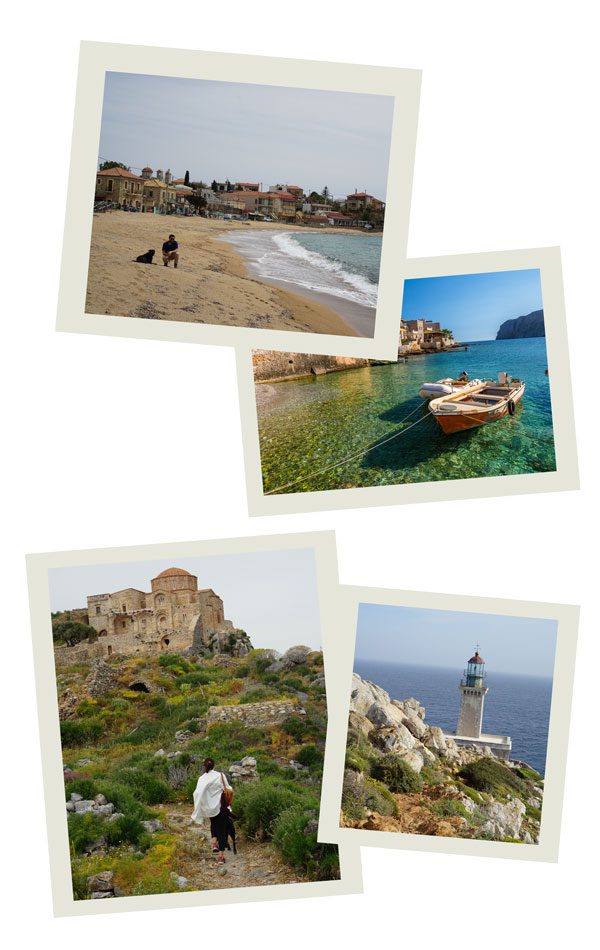
Best Time to Visit
For us, the best time to visit Greece is between April and May or September and October. We were in the Peloponnese region in the spring, and the weather was perfect for outdoor activities; it wasn’t too hot and the beaches were empty since we beat the large summer crowds. We even got to see snowcapped mountains and the beach from the same spot. However, the ocean was pretty cold.
If you choose to go in the spring, just make sure to plan around the Orthodox Easter holiday. They host great celebrations, particularly in smaller villages, but it is a really busy time across the country, and hotels get booked way in advance.
When we go back, we’ll certainly choose to visit in September. From what we were told, the weather is equally as beautiful as the spring, but the water is much warmer then, since it’s had three months to warm up.
If you really want to avoid the crowds and want to stick to a budget, then the winter months are the best options for you.

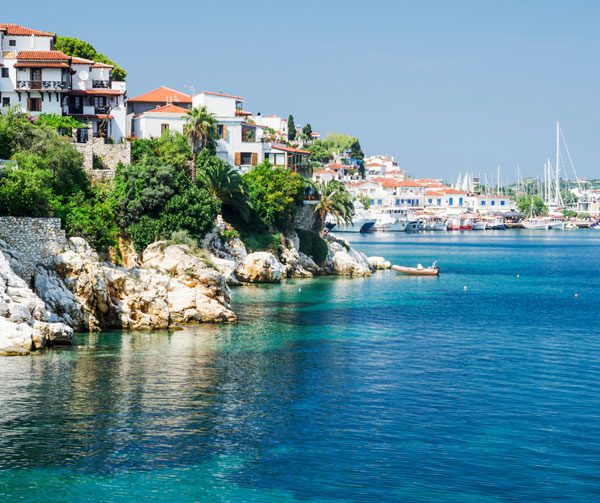
Not To Overlook
Healthcare: We highly recommend purchasing travel insurance before embarking on your trip. No matter how careful you are, accidents are prone to happen, and the last thing you want is to have a medical emergency abroad with no financial protection.
There are several companies out there, but after relying on them more than once, we can say we are extremely satisfied with SafetyWing and highly recommend it to others looking for peace of mind while traveling.
SafetyWing offers two different types of insurance: 1) nomad insurance, perfect for travelers looking for affordable and flexible coverage, that can either be easily extended or canceled at any point; and 2) a remote health plan, ideal for long-term travelers or full-time nomads since it includes coverage in the home country and anywhere in the world, and covers not only accidental injuries but also cancer treatments and routine care.
Overall, their platform is incredibly easy to use and the entire process is straightforward, and their customer service is knowledgeable, kind, and eager to help. What’s also great is that you can purchase the insurance at any point from anywhere in the world, meaning you don’t have to do it before your trip, and there is no limit on the duration of your trip.
Safety: Though Greece has had some turmoil in recent years, we never felt unsafe during our month-long stay. As in many places, pickpocketing can happen, especially on public transportation or crowded beaches, so just make sure to keep your belongings close. Also, driving in Greece (particularly on narrow roads) can be a bit scary, since drivers can get impatient, so be careful.
How To Get Around: Larger cities like Athens are very walkable, though there are buses and taxis throughout as well. However, if you’re looking to travel throughout the country, we recommend renting a car. It’s the easiest way to get around, just note that tolls can get quite expensive and roads can be narrow and windy around the mountain regions.
For rental cars, we recommend using Discover Cars. The site is very user-friendly and aggregates all types of vehicles and prices to make sure you find the best deal.
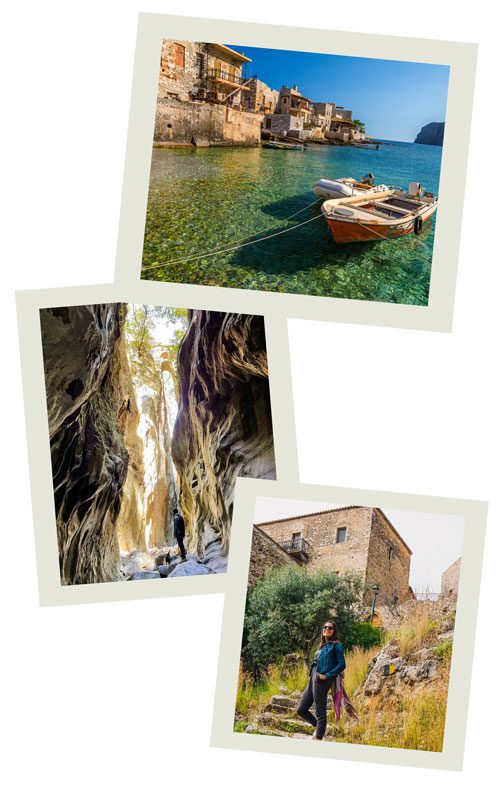
Tips for Traveling with a Pup
In the countryside, dogs are often viewed as guard dogs (note, we can only speak of the Peloponnese region, where we spent one month). You’ll notice they generally live outside and bark whenever another dog walks by. As a result, people aren’t used to seeing them on beaches and can be wary if you decide to bring your pup along for a stroll off-leash. Though we didn’t see any official signs banning dogs from the beach, we were told by locals to be careful if we did decide to bring them.
Some people are scared of dogs and can be nervous or uncomfortable if they see them running around. We certainly took our pup to every beach we went to, but we only did it when they were essentially empty. To be safe, we’d recommend avoiding crowded times. This means, going either early in the morning or later in the evening, or in the spring or fall months when the beaches are far less crowded.
In addition to the traditional ticks, dogs in Greece are also at risk of sandflies. For this reason, we’d recommend visiting a vet as soon as you get to Greece to make sure your pup is protected against any and all bugs. In our case, we were advised to put one of those protective collars on Piper. On a side note, it was also incredibly helpful to keep ticks away. Prior to putting it on, we would generally find one or two on her after a long walk outdoors, but that immediately stopped after putting on the collar.
Lastly, be careful with ticks, particularly in the spring and summer months. They are very common in the countryside, especially in the olive-tree fields that we walked through quite often during our stay in Peloponnese.
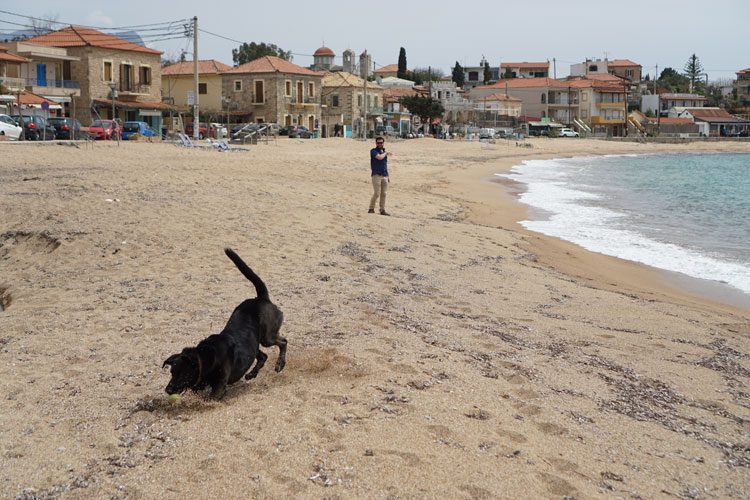
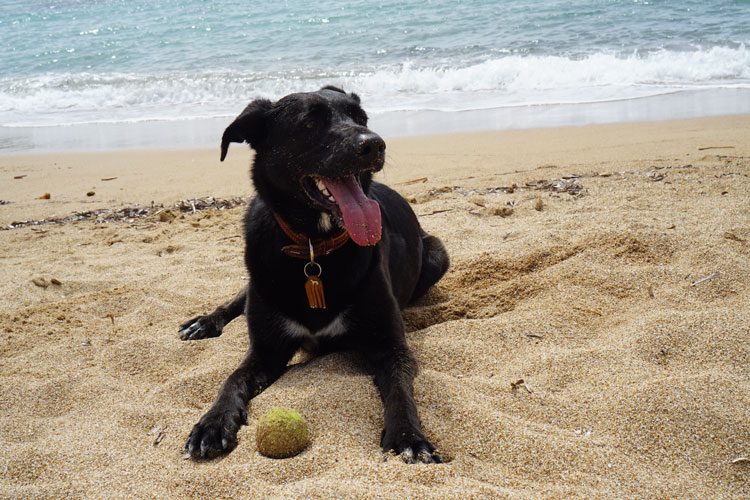
Where to Stay
There is so much to do in the Peloponnese, but finding the right hotel or B&B can be time-consuming. That’s why we’ve compiled a list of the best places to stay in Peloponnese, from smaller, boutique accommodations to luxury spots right on the water.
Best Things to Do
A Greece travel guide would not be complete without a list of our favorite things to do. We spent a month in the Peloponnese region, so that is where we will focus most of our tips and travel guides, including the best places to visit, our favorite hikes, the best places to stay, and our favorite road trips. Looking for even more adventures? Click here for the top tours in Greece.
Explore Mani, Greece: Ultimate 7-Day Mani Road Trip Itinerary
Greece’s Mani peninsula has something for everyone – crystal clear beaches, historical ruins, and magical villages – ideal for a road trip.
Best Places To Stay In Peloponnese, Greece
From smaller, boutique accommodations in remote villages to luxury spots right on the water, here are the best hotels to stay in Peleponnese, Greece!
Our Favorite Trails and Hikes in Peloponnese, Greece
Looking for hikes in Peloponnese? Here are our favorites – some easy, some hard, some on the beach, some in the mountains.
Explore Greece: Best Places to Visit in Peloponnese in 2024
Looking for an off the beaten path spot in Greece? Check out the Peloponnese region – filled with mountains, beaches, and incredible cuisine!
Save for Later? Pin It!
